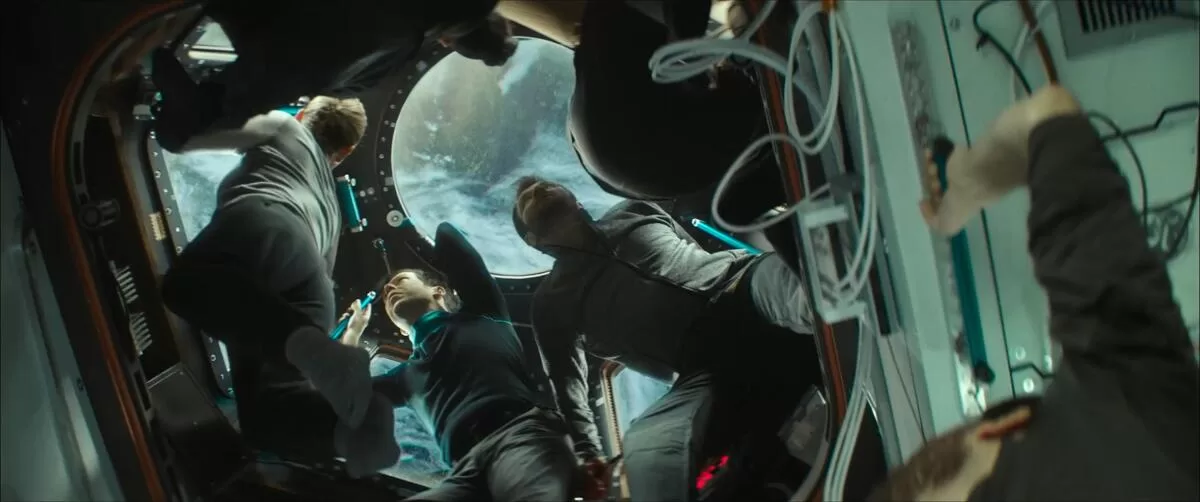The Cold War is in the past and aboard the International Space Station, the cosmonauts and astronauts have formed an international family, speaking Russian and English, working on their research side by side. Through the cupola, they have a view of Earth where there are no visible borders. But that sense of unity hangs in a delicate balance. The space station might orbit the Earth, but it is still an extension of “down below.” What happens there reverberates aboard the I.S.S., a concept explored in this quiet but gripping suspense thriller.
Ariana DeBose stars as Kira, the new kid aboard the space station, entering into a unique and tight-knit dynamic among the Russian and American crew. Their carefully calibrated social ecosystem is thrown into question after the group witnesses some kind of nuclear attack on the planet, with orange flames engulfing an entire continent. Both the Americans and the Russians are instructed separately to gain control of the space station by any means necessary, and suddenly, every conversation, every action becomes loaded with meaning: Is there still a fragile accord in place or is everything a manipulation?
Written by Nick Shafir, “I.S.S” is more a chamber piece than an action movie, with a story that distills global issues into a miniature microcosm, drawing on deeply human emotions to motivate the characters: love, fear, impulsiveness, bravery. There’s Kira’s unease as the outsider, and she serves as the audience avatar aboard the ship, but Shafir also weaves a spin on “Romeo and Juliet” into this story, with a secret romance and the big emotions that power it.

(Bleecker Street / TNS)
There is a sense of authenticity and realism in the production design of Geoff Wallace, as the station looks like a real space inhabited by humans over a long period of time. They also achieved the look of zero gravity with the actors performing on tethers with the lines digitally erased (though sometimes the look of the harness can be seen in the hitch of their pants). At 95 minutes, there’s an efficiency to the storytelling as well as the craft, the tight edit by Richard Mettler and Colin Patton situating the audience well and keeping the information spare but clear.
It’s Cowperthwaite’s direction and the excellent cast that bring to life the chilly anxiety that imbues every interaction, driving up the tension in this claustrophobic space. The most harrowing scene in the film involves two crew members simply making a sandwich.
While DeBose is positioned as the star and heroine of the movie, the actors surrounding her make it interesting, including Chris Messina and Costa Ronin as opposing commanders, and John Gallagher Jr. and Pilou Asbaek as characters who both exhibit a constantly shifting trustworthiness. Masha Mashkova proves to be the heart of the story. DeBose is more stoic, her character guarded but also somewhat guileless. Though Kira reads as hyper-vigilant, she’s a bit slow to fully comprehend the small-scale war that’s playing out aboard the space station.
“I.S.S.” is a story with big political ideas and drama that is driven by human emotion and behavior. It’s a reminder that our peace is often tissue-thin, rent all too easily, even among neighbors and friends, and that wars that happen far away happen to all of us, too. It’s a surprisingly trenchant story for what seems to be a slight genre thriller, but then again, genre thrillers can be the best vessels for these kinds of messages.
Katie Walsh is a Tribune News Service film critic.
‘I.S.S.’
Rating: R, for some violence and language
Running time: 1 hour, 35 minutes
Playing: In wide release Friday
